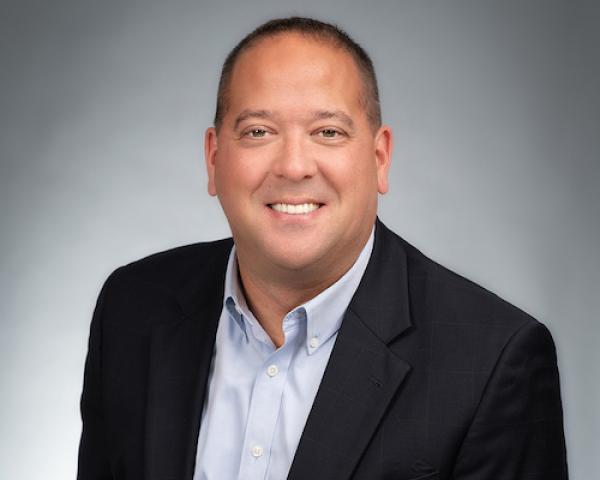Paul Carroll
Based on what you’ve written for us, I gather that the first thing an agency or brokerage should do in setting strategy is to think about carriers’ expectations. Could you tell me a little bit more about how that plays out in real life?
James Keane
it's probably a little different this year than it has been in the past. Carriers’ expectations have changed so much, so fast.
In the past, their expectations were simple. They wanted you to write business, they wanted it to be profitable business, and they wanted you to write as much of it as you could, as often as you could. Now, their appetites are changing. But how quickly are they changing? How are their appetites different now than they were three or four or five months ago? Appetites are continuously evolving. Being able to have those conversations with your carrier partners is critical so you know exactly what's changing throughout the year.
And you have to be able to measure everything so you understand what you're trying to accomplish. If your goal is to write X number of policies from new business, are you able to build that in backward by saying, If I want to write 100 policies, and I have a 50% close ratio, that means I need to quote 200 policies? So what do I need to do to quote 200 policies? How many leads do I need to speak to get to those two hundred quotes?
And what's the value of a policy? Even though your goal might be to write 100 policies, what if you can write 50 policies that are each twice as profitable? Is that better?
Understanding all the numbers is super critical for your agency to evolve and grow throughout the year and stay nimble.
Paul Carroll
Homeowners is one that we're reading a lot about. It's very much in flux. Auto rates are certainly going way up. Cyber is undergoing significant changes, too. Are those areas that you're talking about that might have different carrier appetites, or are there others, as well?
James Keane
When you think about personal lines, auto and homeowners, carriers have been trying to get the rate that they needed for the last couple of years and certainly in the last 12 months. They're getting closer and will be able to write business more freely. The issue is obviously very state-specific. California comes to mind as state where there have been challenges with rate adequacy because there are a significant number of high-value homes, major wildfires and more over the years. We're starting to see some pieces around the auto market stabilize: Used car prices are decreasing while inventory is increasing.
But all those services that are insurance-adjacent – the mechanics and body shop folks who are working on cars, the contractors who are working on houses – well, all of their payrolls have gone up, and will reset at a new normal.
Cyber is interesting, because you have more people working at home with computers that are not in a protected network. That is still such a new class of business.
But while cyber is definitely seeing more policies initiated, more insurance folks are still putting more focus on auto and home because that's what has always paid their bills.
The second point you make strikes me as more of a general one. Inertia is a powerful force, and you're saying people have to commit to really thinking about doing things differently rather than just coasting. If you talk to a lot of insurance people, many will continue to run their business the way they always have. It’s worked for them forever.
But if you think about our industry, there has been more change in the last three years than probably in the 10 or 15 years before that. A lot of that change was by necessity. If you want to continue to grow, and rapidly, what are you going to continuously do differently? Are you evaluating everything that's going on in your agency to determine what is working well and what can be improved on? What do you need to continue doing versus what should you stop doing?
So it’s the “Start, Stop, Continue.”
I ask people a lot about what they are doing in their business and why. Often, they respond, "Oh, this is what I did last year. And this is how I got to where I am." A lot of times people are saying they're in a wonderful place in their agency and in their career, but if you're trying to get to somewhere different and if you're trying to have exponential growth, what are you doing differently to really get that momentum going?
The answer could be how you manage your people, or perhaps how you're prospecting. It could be how you're marketing, or it could just be the market that you're going after.
We need to be ruthless about how we evaluate those processes to say: What do we need to start? What do we need to stop? And what do we continue doing so we can, again, accelerate?
Paul Carroll
That sounds absolutely right. I've long found that stopping stuff is even harder than getting things going. There's this inertia that develops. Having written a few business books in my time, I'm waiting for the opportunity to write the book that says what not to do. A lot of books tell me what to do. I want to tell you what not to do.
James Keane
When you ask a sports coach or instructor why they did something, a lot of times they say, Well, that's how I was taught. Then you ask them when that happened. Were you taught that 30 years ago when you were in high school? Well, things have changed over 30 years.
Certainly the basic tenets of our business have stayed the same. Relationships matter. Relationships with your agents matter. Relationships with your consumers matter. Relationships with your staff matter. All of those things are super critical, but they've changed. Twenty years ago, you interacted with your clients via phone, fax or in person. Now, you have a whole range of new options. Are you adjusting, or are you doing things the old ways just because that’s how you’ve always done them?
The old ways might still be right. But there should be a current reason for using them. It shouldn’t just be because that’s how you were taught. And, yes, stopping is always so hard.
Paul Carroll
Twenty-plus years ago, I interviewed a guy who had been No. 2 at Cisco and had made a whole mess of money. Then his mom died of ovarian cancer, and he got ticked off that ovarian cancer was so hard to detect. He started a foundation seeded with about $100 million of his own money to improve the detection of certain cancers, and he managed to get a Nobel Prize winner in medicine to lead it. He told me that he rather sheepishly told this guy, “I have to admit I got a C in high school biology,” and the Nobel Prize winner said, “That's okay. Everything they told you was wrong anyway.”
James Keane
Things change, right? I started my career in the early 2000s The industry was different then. Not better or worse, just different. Things evolve.
Back in 2004, nobody would have predicted that for a year, basically every agency was going to be fully remote due to a pandemic. But in 2020, we had to learn to interact differently. We used to do our banking in-person. Now I don't remember the last time I went to the bank.
So the relationships still matter. But how can you change that relationship so that the time you spend in-person is more meaningful? Get the transactional things out of the way so that you can have the conversation around: “Hey, listen, I took care of all the transactional things. I have your home covered. But let's talk about your next steps. Let's talk about where you want your business to go so that we make sure we can protect. Let's talk about what your goals are for your personal life so we can make sure you’re protected as your assets continue to grow."
Paul Carroll
You’ve also written about how people sometimes do not write down goals. That’s a pet peeve of mine, because the lack of a record means people can kid themselves about how accurate their planning was.
James Keane
Early in my career, somebody told me that if you don't write down your goal, it's a dream. And that's not really a good plan. You actually have to write down something so you can aim for it.
To me, a goal doesn't necessarily need to be something like, "I'm going to hit this very specific dollar number." It can be a variety of things. But when you create that goal, you want to share it. Nobody wants to try and achieve something but only do so internally, because you want to be able to share that success when you hit it.
Let's say your goal is to write 10 policies a week. For the overwhelming majority of people, it's pretty powerful to start ticking off the numbers, then see how far over that goal you can reach. When you have that written goal, you also can't back away from it. Perhaps you want to go from two policies per household to 2.3 policies per household. As you start building your action plans out, you can evaluate: Do they help me reach that goal or get in the way?
By the way, when we hit the goal, we're going to have a party. We're going to celebrate this achievement. You should celebrate, not just as a business owner, but as an entire staff. Take them out, have a party and enjoy it.
Paul Carroll
Certainly with big companies, which is where I've tended to live for the last four decades, there's a tendency to assume that things only go upward, that you're going to maintain that baseline you have and then add to it. There's a tendency not to realize that, oh, the other guys are smart, too. The other guys are working hard, too, and they're going after our business at the same time we're going after theirs. I think that understanding certainly needs to get incorporated into planning.
Now that people have set their goals and worked backwards to understand what they need to do, how should they approach marketing?
James Keane
The first question should be, What does success look like for marketing? How do you measure it? Lots of online tools let you track things like open rates and click-through rates. You need to know, ultimately, when people come to you, how did they hear about you? What campaigns are working?
Think back to the days of the phonebook; everybody advertised in the phone book because they had to advertise themselves. Does anybody know what the phonebook actually did to help their business?
When you build out your strategies, you must start thinking about your consumer. Who is the consumer you're trying to get to? And is your marketing strategy going to target them? If you're going after a multi-line, mass-affluent type of client, you can't look for them in a place that mass-affluent people don't go.
You also must build your agency staff toward that goal. You must have the staff to follow up on your marketing.
Paul Carroll
You’ve also talked about the need to look for outside help.
James Keane
I'm a huge believer in getting other people's opinions. Consultants can be great. Mentorships can be great. People in the same business and in the same place as you are great. Remember, none of us need to know everything. We need to be able to talk through ideas and figure out how we make things that work for the business.
A nice thing is that consultants and networks have a bias in your favor. If you grow, they look good. If you don’t, they don’t.
At the end of the day, our business is to help our clients and to be there when our clients are having a really bad day. What can we do to create value for them so that they want to continue to see us when they're not having a bad day? What can we do to ensure our clients trust us to give them good advice and to provide them good solutions so that when a bad day does happen, we're able to help them out?
So we have to constantly question and test. If something isn’t right, change it. Move on. Ask questions to get better.
Paul Carroll
I agree totally. I really appreciate your taking the time to speak to me today.








